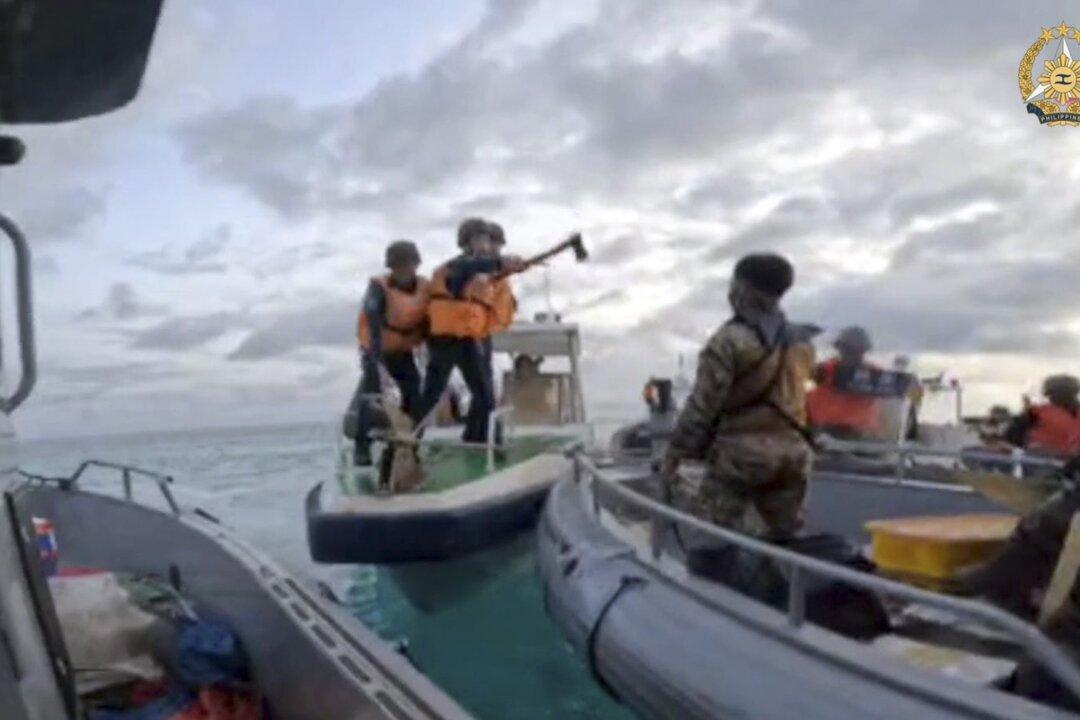The Hong Kong protests are raising already elevated tensions between the United States and China. But China’s biggest concern isn’t actually Hong Kong. It’s not the painful U.S. tariffs, the costly ban on Huawei network equipment, or even the United States’ diplomatic support for the protesters.
All of these policies have certainly added considerable friction to Sino–U.S. relations, but the deepening U.S. relationship with Taiwan is their biggest worry. The Hong Kong situation and Taiwan aren’t directly related, but each definitely affects the other.
China Needs Hong Kong as Financial Gateway
On the one hand, Chinese leader Xi Jinping can’t afford to damage the critical financial and diplomatic benefits that Hong Kong provides Beijing and the Chinese economy. Hong Kong remains China’s primary gateway to global financial and trade relationships.On the other, if not contained, the movement could lead to other rebellions against the Chinese Communist Party (CCP). That possibility may force Xi to crack down on the protesters by playing the “Article 14 card.” Article 14 says that China’s Hong Kong-based military forces won’t interfere in local affairs, unless the Hong Kong government requests assistance “in the maintenance of public order.”
Such a request from Hong Kong leader Carrie Lam could come at any time.
Will Xi Use Article 14?
It appears that Xi may be leaning in that direction, or at least is using the threat of doing so. For instance, China’s state-run media have accused the United States of being behind the protests. Blaming foreign interference has been used in the past as a pretext for crackdowns.In a news conference on July 24, Xi’s Defense Ministry spokesperson, Wu Qian, didn’t allay such fears, when she said that “some radical protesters’ actions challenge the authority of the central government and the bottom line of ‘one country, two systems.’” She also added that the ministry would follow Article 14 of Hong Kong’s Basic Law.
Is the CCP forecasting military intervention in Hong Kong? If so, how would the United States respond?
Will the US Remove Hong Kong’s Privileges?
Such a move by China could come at a very steep price. The United States may respond by playing the “U.S.-Hong Kong Policy Act card.”The U.S.-Hong Kong Policy Act passed by Congress in 1992 gives Hong Kong special economic and trading privileges that include access to restricted technologies and an open currency exchange between the Hong Kong and U.S. dollar, as if it were a separate political entity from China. Hong Kong’s privileged treatment by the United States, along with its reputation as a center for international finance, has been a key advantage for China’s trade and financial relations with the rest of the world.
Military interference by China could lead the United States to void the U.S.-Hong Kong Policy Act. Further financial withdrawal from Hong Kong by the international community would likely follow, a blow that China’s ailing economy can ill afford. Plus, it would lower China’s standing in the world and raise Taiwan’s profile as a sanctuary for the peaceful protesters victimized by Xi’s military troops.
A Confluence of Risky Events
To avoid such potential catastrophes, Xi must adopt a less confrontational approach to resolving the Hong Kong protest movement, or hope that it loses momentum or public support. At the same time, he must somehow deter the United States from expanding its already deepening relationship with Taiwan.That may prove to be difficult and risky for both sides, as a confluence of events continues to add new complexities.
Earlier in July, Washington approved a multibillion-dollar arms deal with Taipei that includes the sale of 108 Abrams tanks, 250 Stinger missiles, and related equipment. This follows a 2018 agreement to sell Taiwan 144 upgraded F-16V fighter jets.
Both of these arms sales have been problematic for China. They are at odds with Xi’s vow early this year to reunite China and Taiwan, and in which he warned that China reserves the right to use force to do so, if necessary.
The increased frequency of U.S. warships in the Taiwan Strait under the Trump administration also has rankled the Chinese regime.
Turning Up the Rhetoric
China has responded to U.S. policies with rhetoric usually reserved for its domestic audience, announcing on July 24 that it’s ready to go to war if the United States continues to press for Taiwan’s independence.At about the same time, over the Sea of Japan, Chinese, Russian, Japanese, and South Korean fighter jets overlapped flight paths in a dangerous display of competing territorial claims. And on July 24, North Korea, which relies upon China for food, heating oil, and other essentials, conducted two short-range missile launches that South Korea has identified as a new kind of threat.
Coordinated Leverage to Bargain With US?
The chances that these events aren’t related seems unlikely. War, or even the threat of war, is a high-risk tactic that could easily escalate to the detriment of everyone.Yet, it may be that China, by threatening the war with the United States over its relationship with Taiwan, seeks to both deter the United States from selling arms to Taiwan, as well as minimize the blowback in the event of a crackdown in Hong Kong if, in fact, that were to occur.
Is that a rational approach for China to take? It might be. How the Hong Kong situation plays out remains to be seen. But it’s far from certain that what happens in Hong Kong, will stay in Hong Kong.
James Gorrie is a writer based in Texas. He is the author of “The China Crisis.”
Views expressed in this article are opinions of the author and do not necessarily reflect the views of The Epoch Times.





